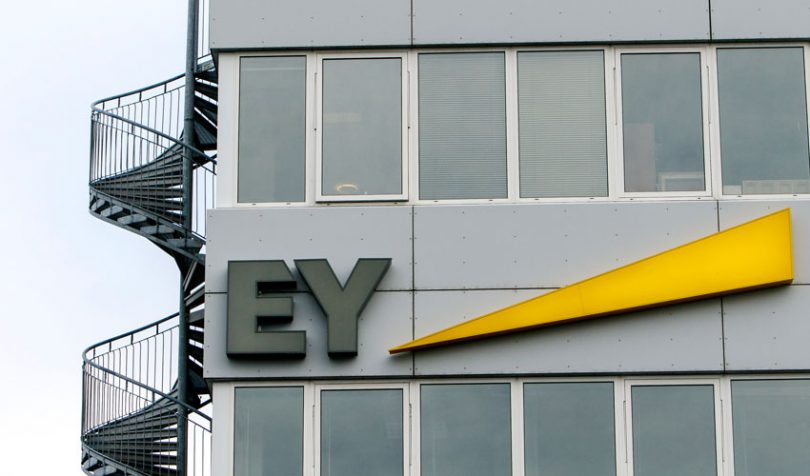On the 19th July EY’s global blockchain leader, Paul Brody, responded to questions from the Ethereum community posed to him via online messaging board Reddit. He is clear on EY’s focus for enterprise: moving from private to public blockchains. Brody acknowledged he has contrarian views when he stated: “I think financial services might end up being one of the least affected [by blockchain].” But he has a reason.
Private vs Public
EY uses Ethereum to develop its distributed ledger technology (DLT) software. However, enterprises often prefer a private blockchain as it offers more control. Why choose a public blockchain?
“I strongly believe that the only way blockchain ever delivers on the kind of vision we have is if we use one global public blockchain,” stated Brody.
“If you’re using a private blockchain, then you are limiting your scalability? Not from a technical perspective, but from an organizational perspective, right? The beauty of Ethereum is it’s the most popular public blockchain. It’s [also] the most popular private blockchain. And so with a single skill set and a single set of applications we can serve clients in both public and private blockchains,” he continued.
Brody also shares EY’s vision: “we can help [clients] be ready for what we hope will be an eventual migration of all kinds of enterprise work over to public blockchains.”
Zero-Knowledge Proofs
He recognizes that private blockchains still dominate the sector. Businesses prefer to have the peace of mind which comes with a privately controlled platform. For now. While blockchain provides a single source of truth, transactions on a public blockchain would be secured with zero-knowledge proofs (ZKPs) which aren’t so well understood.
Brody is asked: how important it is that users of the technology like this are able to understand how it works?
“That is such an awesome question because I, myself, feel a lot of distress; we have passed my level of math understanding a long time ago,” he begins. Brody explains that ZKPs have gone through vigorous testing and that, in the same way many feel about cryptography, he trusts the developers.
“I can be confident that the process of vetting and review will produce a solution that is trustworthy.”
The Future of Blockchain
His and EY’s hopes for public blockchains in enterprise rely on firms taking the plunge and adopting ZKPs. He likens it to the initial adoption of blockchain technology altogether.
EY boasts high profile blockchain clients. Brody explains the firm is focused on the quality of collaborations, not quantity: “we have two major partnerships in the world of blockchain for EY. Number one: Microsoft. They’re our biggest client.”
“This is where we’re managing Xbox video game licenses the licensing transactions for Microsoft on a blockchain,” Brody reveals. He claims that they process millions of transaction per day from thousands of video game developers. A green flag from the tech giant is a good sign for EY’s ambitions in the blockchain world.
Upon being asked whether some industries are suitable for the technology and some aren’t, Brody states: “I don’t think there’ll be many industries in the end that aren’t in some way kind of affected by blockchain.”
“Manufacturing, logistics, supply chain management; those I think will be among the first to move forward. There’s some others like pharmaceuticals […], so we’re working on use cases where individualized drug development and medication is tracked from the taking of the blood sample from the patient to the manufacturing process and all the way back.”
Brody echoes the general consensus that logistics and supply chain are some of the fastest blockchain movers. The world of healthcare, too, has many projects on the go.
However, he doesn’t have high hopes for some sectors: “I will say, interestingly, that I think financial services might end up being one of the least affected in this respect.”
There are plenty of high profile projects in the sector, and just today a survey of financial services firms revealed that 53% responded that new technologies such as blockchain will have the biggest impact on them over the next few years. So why doesn’t EY’s head of blockchain agree?
“Blockchains are at their highest value when you want to have coordinated multi-party processes without a centralized intermediary,” Brody explains.
“The very interesting case with financial services is […] intermediaries are for all practical purposes required by law. You have to have ID. It can’t just be a self-sovereign ID.”
Brody continued: “So ironically the regulations that exist in the financial services industry may mean that blockchain’s value proposition isn’t that strong there. Even though, in many ways, that’s where it originated.”
So where does Paul Brody think blockchain will go for EY? With the firms quality over quantity approach, he is pretty optimistic: “My goal is for EY to be the world’s leading blockchain software company. I don’t mean among the big four. I mean among all software companies.”







